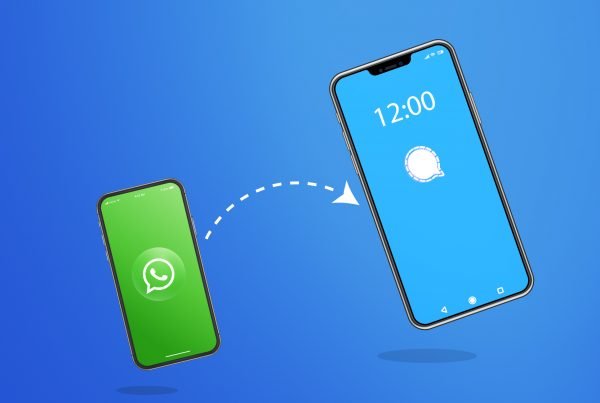What is the right time to call/email/chat with your customer?
The evolution of communication can be considered parallel to the development of businesses. Email was once the go-to way of communication with customers. But chat application like WhatsApp has gained popularity over it. Let us prioritize our options on our mode of communication with a client.
You should call a client only if it is that important and when you have no other options. People may not be available to attend a call all the time. Sometimes they might be in the middle of something or may not be in a silent environment.
Emails are a good choice of communication as they can explain the subject in detail and gives a professional approach. The qualities that make email good are the same reasons that cause delays in email communication. Since emails are official in nature the client will have to think twice to frame the response in a professional manner. This could take a couple of hours to even a couple of days.
The only viable option then would be texting or chatting through an IM application like WhatsApp. WhatsApp is preferred over the conventional way of SMS as text, photos, videos, and voice notes can be sent through it. Clients prefer WhatsApp over other communication channels as they can respond to the texts instantly, even if they are in a meeting or any other situation. But still, you should text your client only if you feel that you need their response within a couple of minutes or after a few hours. WhatsApp communication may be informal, but it is still official. It is easier for a client to simply respond “OK” for a piece of quick information from the broker rather than framing a mail with long sentences.
So, in general, if you want to get a reply from your client within 30 minutes or so, you can call them. So that puts ‘call’ in the first place.
But if you think that your requirement is not that urgent and you are expecting the client’s response by late today or even tomorrow, then sending them a message in WhatsApp will be the best choice. Hence the second place goes to ‘WhatsApp’.
If you want your client to have specific details, and you can wait for them to make a decision, and wait for their response for a couple of days, then you should certainly send an email. Obviously, ‘email’ will have to go for third place.
Which are the situations where WhatsApp can be used to communicate with clients?
In earlier days, financial regulators had prohibited the use of IM applications like WhatsApp, for communicating with clients. But after the Covid-19 pandemic, regulators also felt that instead of imposing a blindfold ban over these applications, it is better to allow them, combined with an effective way of monitoring.
Once financial firms have adopted a tool that is capable of WhatsApp call recording, WhatsApp text message recording, and WhatsApp archiving, that is compliant with WhatsApp MiFID II, and other such regulations, then WhatsApp can be used for enterprise instant messaging.
Client first approach: You can build a rapport with your client by reaching out to them for all their trade-related requirements. Check with them periodically to ensure that they are good and well so that trust can be generated.
Wishing them on their birthdays and anniversaries helps in building a bond with your client. There will be good and bad times for everyone, and even a simple wish could set a positive attitude that could have a huge impact on the business. And people could use some support at times like these.
Sending information: While people are busy and are on the move always, it is usually hard for them to sit in front of a laptop and browse through the internet. This is why most people use their phones for the business. If you feel that your client should know more about the market, and you found some interesting information on the internet, then instead of sharing the web address via email, you can send it through WhatsApp. This allows the client to read it whenever and wherever they want.
Give your clients advices and updates: Any updates or trends in the current market can be shared with the client using WhatsApp. Also, trade-related advice can be given to the client.
Fixing appointments and following up: Yes, officially you should send the meeting invite link through the mail. But to know your client’s preferred time, you can simply chat through WhatsApp and know their preference. Once meeting invites are sent by mail, you can always follow-up and remind the time and date of the meeting with the client. It is better to text a client rather than calling them.
Be the best and market yourself: Try to think in the shoes of your clients. If you are expecting a piece of market advice from your advisor, you will expect it to be prompt and readily available. The communication gap is a factor that negatively impacts the business. WhatsApp chats are effective in that manner when compared to emails and calls. Try to respond to your client within the shortest time possible.
While trying to do a good job of better communicating with the client, you can always ask for their feedback about your service and request recommendations. Make use of a survey form that is easily accessible from a mobile version of the browser and try to keep it short.
Why WhatsApp is a good choice of communication?
The Facebook-owned instant messaging (IM) solution WhatsApp has become the favorite channel of communication for business. The ease of sending and receiving messages and calls through this application gives it an upper hand over conventional ways of communication such as calls and emails.
Since you have the option of ‘read receipts’, you can confirm whether the message you sent was received and seen at the other end or not. ‘Last seen’ is another option in WhatsApp that allows you to know if the person you are chatting with is online or not. You can take a break for a while if the other person has not been online for some time.
The voice and video call feature in WhatsApp also comes in handy when you need a more direct communication experience. The convenience that this application offer gives it an edge over calls and emails.
Just so that WhatsApp is easy to use doesn’t necessarily mean that it is safe to use. Messages sent through WhatsApp can be deleted within two minutes of sending it. Also, you can send self-destructive messages that will be automatically deleted after a preset time. WeChat, which is a similar IM application, does not support end-to-end encryption. Hence messages sent through WeChat cannot be guaranteed security and privacy.
Features like the ones mentioned above pose grave compliance risks and are nightmares for the compliance team. Therefore in case, WhatsApp is being used as a communication channel between brokers and clients, then regulatory compliance, as well as privacy, must be ensured.
What are the different regulations to be followed while communicating with clients?
Depending on the area of operation, financial firms must follow the policies imposed by the concerned financial regulators of that country.
In the United States, the Federal Communications Commission (FCC) enforces Telephone Consumer Protection Act (TCPA) to prevent companies from spamming their customers. The act prevents firms from calling or texting clients without prior permission from the latter. The clients must have the option of opting out from the messaging service if they intend to do so.
The Financial Industry Regulatory Authority (FINRA), which is overseen by the Securities and Exchange Commission (SEC), is another regulatory body that frames policies for ensuring ethical business operation in financial firms.
The General Data Protection Regulation (GDPR) ensures the data privacy of all people in the European Union (EU). Markets in Financial Instruments Directive (MiFID) II is another regulation that protects the investors in the EU. The Financial Conduct Authority (FCA) is the regulatory body that must ensure that financial firms will implement this policy.
The Monetary Authority of Singapore (MAS) and the Singapore Exchange are the institutions that frame financial regulations in Singapore. The Hong Kong Monetary Authority (HKMA) is responsible for ensuring that financial firms operating in Hong Kong are compliant with the HKMA’s policies to protect the investors.
In general, all the regulations and regulators mentioned above require financial firms to value the privacy of their clients. They also require firms to record and retain all conversations involved in a business, irrespective of the channel used for communication. This could be voice and video calls, text messages, including all sorts of communication through WhatsApp, WeChat, or any other IM application.
About TeleMessage
TeleMessage captures and retains mobile content, including mobile SMS messages, voice calls, and WeChat conversations from corporate or BYOD mobile phones to ensure compliance with various data protection regulations. The messages are securely and reliably retained within TeleMessage servers or forwarded to your choice archiving data storage vendor.
Our mobile archiving products securely record content from mobile carriers and mobile devices for various ownership models (BYOD, CYOD, and employer-issued). With our multiple archiving solutions, you can always find the right tools or blend for your requirements:
- Network Archiver
- Enterprise Number Archiver
- Android Archiver
- WhatsApp Archiver
- WeChat Archiver
- Telegram Archiver
- Signal Archiver
TeleMessage offers cross-carrier and international mobile text & calls archiving for corporate and BYOD phones. Visit our website at www.telemessage.com to learn more about our mobile archiving products.





